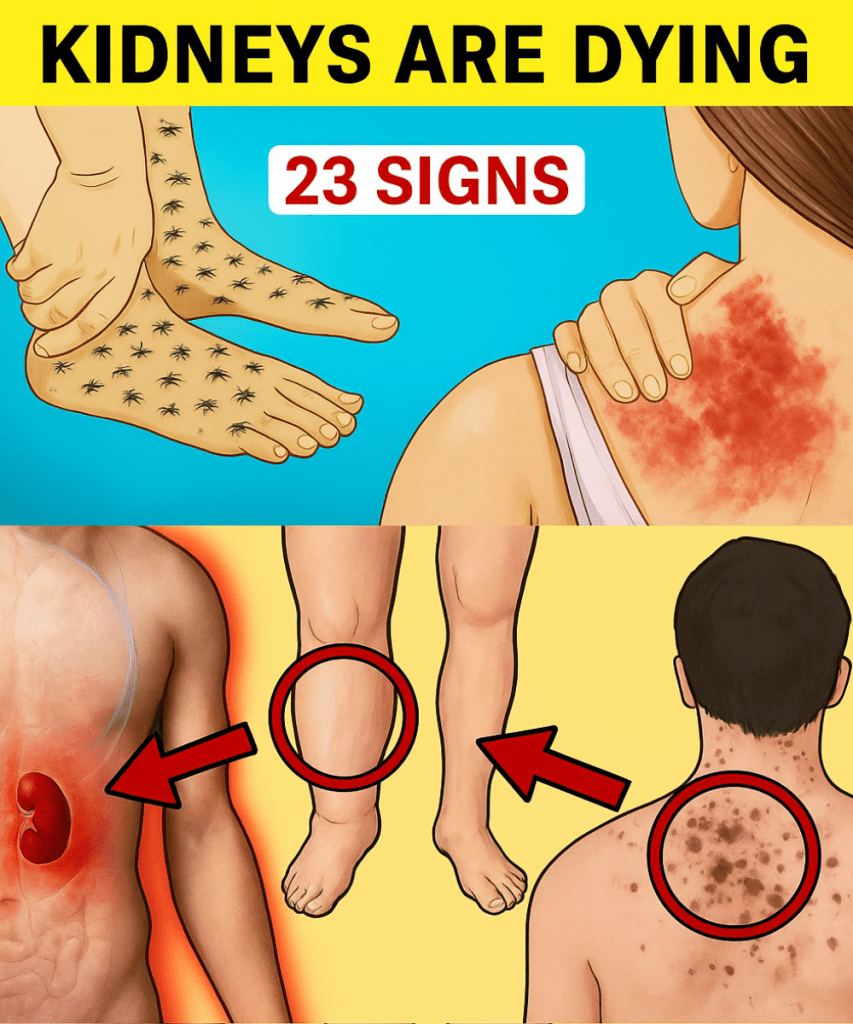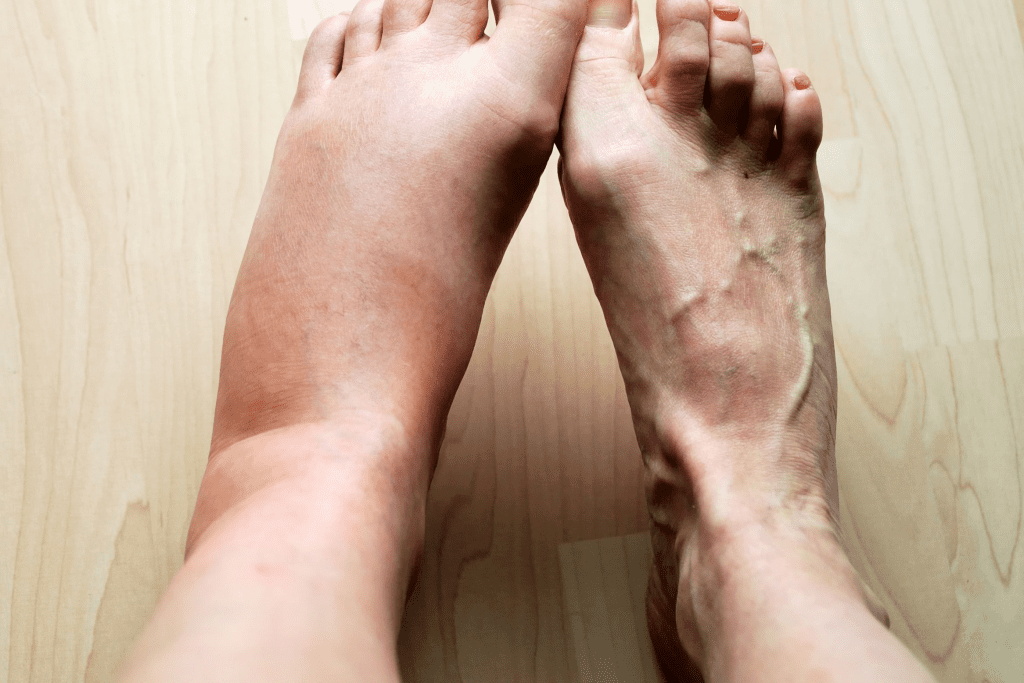Your kidneys are the unsung heroes of your body, tirelessly working behind the scenes to keep you healthy. These small, bean-shaped powerhouses filter waste, balance fluids, regulate blood pressure, and even help produce red blood cells. But when they’re struggling, the signs can be so subtle that you might miss them until serious damage has already taken root. Ignoring these warning signals could lead to long-term health complications, but catching them early can be a game-changer. Ready to tune into your body’s cries for help? Let’s dive into the 23 subtle yet critical signs that your kidneys might be begging for attention—and what you can do to protect them.

Why Your Kidneys Matter More Than You Think
Imagine your kidneys as the body’s master filtration system, processing up to 150 quarts of blood daily to remove toxins and maintain balance. When they falter, the ripple effects can disrupt nearly every system in your body, from your energy levels to your heart health. The problem? Kidney issues often develop silently, with symptoms that mimic everyday annoyances like fatigue or dry skin. By the time you notice something’s wrong, the damage may already be significant. This article is your roadmap to recognizing those sneaky signals and taking action before it’s too late. Let’s explore the 23 warning signs that could save your kidneys—and your health.
🔴 1. Persistent Fatigue That Drains Your Spark
Feeling tired all the time, even after a full night’s sleep? Your kidneys might be the culprit. They produce erythropoietin, a hormone that triggers red blood cell production. When kidney function declines, fewer red blood cells mean less oxygen circulating through your body, leaving you exhausted and drained. If you’re constantly battling fatigue, it’s time to listen to your body.
😴 2. Trouble Sleeping Through the Night
Tossing and turning instead of drifting into dreamland? Toxins building up in your blood due to poor kidney function can disrupt your sleep cycle. This can also worsen conditions like sleep apnea, making restful nights feel like a distant memory. If you’re struggling to catch quality Z’s, your kidneys might be sending an SOS.

🩺 3. Dry or Itchy Skin That Won’t Quit
Your skin is a window into your internal health. When kidneys struggle, imbalances in minerals like calcium and phosphorus can leave your skin dry, itchy, or flaky. If lotions aren’t helping and the itch persists, it could be more than just a surface issue—your kidneys might be crying out.
🚽 4. Frequent Nighttime Urination
Waking up multiple times a night to use the bathroom? Known as nocturia, this could point to kidney trouble or urinary tract issues. Healthy kidneys regulate urine production, but when they’re off balance, nighttime trips to the bathroom can become a frustrating routine.
🫧 5. Foamy or Bubbly Urine
Notice your urine looking frothy or bubbly? This could be a sign of proteinuria—excess protein leaking into your urine due to kidney damage. It’s a red flag that your kidneys aren’t filtering properly, and it’s worth checking out with a doctor.
🦶 6. Swollen Ankles, Feet, or Hands
Puffy extremities aren’t just uncomfortable—they could signal fluid retention caused by impaired kidney function. When kidneys can’t remove excess fluid, it builds up in your tissues, leading to swelling (edema). If your shoes feel tight or your rings won’t fit, don’t ignore it.

👁️ 7. Puffy Eyes in the Morning
Waking up with bags under your eyes that rival your grocery bags? Protein leakage in your urine can cause puffiness around the eyes, especially noticeable in the morning. This subtle sign is often an early clue of kidney trouble.
📈 8. High Blood Pressure That’s Hard to Control
Your kidneys play a key role in regulating blood pressure. When they’re not functioning well, blood pressure can spike, leading to hypertension. If your blood pressure is creeping up or hard to manage, your kidneys might be part of the equation.
😮💨 9. Shortness of Breath
Struggling to catch your breath, even without exertion? Fluid buildup in the lungs or anemia caused by kidney issues can make breathing feel like a chore. This symptom is serious and deserves immediate attention.
👅 10. Metallic Taste in Your Mouth
Does your food taste like you’re licking a penny? A buildup of toxins in your blood can cause a persistent metallic taste and bad breath (known as uremic fetor). This unpleasant symptom is a classic sign of kidney dysfunction.
🍽️ 11. Loss of Appetite
If you’re turning away from your favorite meals, kidney issues could be to blame. Toxin buildup can trigger nausea and suppress your appetite, making food less appealing. Pay attention if you’re eating less without trying.
💪 12. Muscle Cramps That Strike Out of Nowhere
Painful muscle spasms, especially in your legs, could stem from electrolyte imbalances caused by poor kidney function. Low levels of calcium or potassium can trigger these cramps, making them a subtle but significant warning sign.
🧠 13. Difficulty Concentrating
Struggling to focus or feeling foggy? Reduced kidney function can limit oxygen flow to your brain due to anemia or toxin buildup, leading to brain fog and trouble concentrating. If your mind feels cloudy, your kidneys could be involved.

🥶 14. Feeling Cold All the Time
Even in a warm room, do you reach for a sweater? Anemia linked to kidney issues can make you feel unusually cold, as your body struggles to maintain proper circulation. This chill could be more than just a quirk.
😣 15. Back or Side Pain
A nagging ache in your lower back or sides could point to kidney infections, kidney stones, or conditions like polycystic kidney disease. If the pain persists, don’t brush it off as just a muscle strain.
🌫️ 16. Skin Discoloration
A grayish or yellowish tint to your skin can signal waste buildup in your bloodstream, a hallmark of kidney dysfunction. If your complexion looks off, it’s time to investigate what’s happening inside.
🖐️ 17. Persistent Itching on Your Back or Arms
Chronic itching that goes beyond dry skin can be caused by toxins accumulating in your blood. This maddening sensation is a common complaint in kidney disease and shouldn’t be ignored.
⚖️ 18. Sudden Weight Loss
Losing weight without trying? Kidney issues can lead to nausea, vomiting, or reduced appetite, causing unexpected weight loss. While it might seem like a bonus, it’s a warning sign that needs attention.
🤢 19. Nausea and Vomiting
Feeling queasy or vomiting frequently? High toxin levels from struggling kidneys can irritate your digestive system, leading to persistent nausea. This symptom can disrupt your daily life and shouldn’t be dismissed.
😷 20. Bad Breath That Won’t Go Away
An ammonia-like odor in your mouth, known as uremia, can develop when kidneys fail to filter waste properly. If brushing and mints don’t help, your kidneys might be the root cause.
🚰 21. Reduced Urine Output
Producing less urine than usual is a clear sign your kidneys are struggling to do their job. If your trips to the bathroom are becoming less frequent, it’s time to consult a doctor.
🩸 22. Dark or Bloody Urine
Urine that looks tea-colored or contains blood (hematuria) is a serious warning sign. It could indicate kidney damage, infection, or stones. Don’t wait—seek medical advice immediately.
🌡️ 23. Swelling Around the Abdomen
Severe fluid retention can cause bloating or swelling in your stomach area, a sign that your kidneys are struggling to manage fluid balance. This symptom often signals advanced kidney issues.
🛡️ How to Protect Your Kidneys Starting Today
Your kidneys don’t scream for help—they whisper. Catching these signs early can make all the difference. Here are actionable steps to support your kidney health and keep these vital organs thriving:
Stay Hydrated: Drinking enough water helps your kidneys flush out toxins and prevents issues like kidney stones. Aim for 8–10 glasses daily, adjusting based on your activity level and climate.
Eat a Kidney-Friendly Diet: Focus on low-sodium, nutrient-rich foods like fruits, vegetables, and whole grains. Limit processed foods and moderate your protein intake to reduce strain on your kidneys.
Manage Blood Sugar and Blood Pressure: High blood sugar and hypertension are leading causes of kidney damage. Monitor your levels regularly and follow your doctor’s advice to keep them in check.
Limit Painkillers and NSAIDs: Overusing medications like ibuprofen can harm your kidneys over time. Use them sparingly and always follow dosage guidelines.
Get Regular Check-Ups: Routine blood and urine tests can catch kidney issues before symptoms become severe. Schedule annual check-ups, especially if you have risk factors like diabetes or high blood pressure.
🌟 Final Thoughts: Act Now to Save Your Kidneys
Your kidneys are silent warriors, but they can’t fight alone. The 23 signs listed above are your body’s way of waving a red flag, urging you to take action. From persistent fatigue to foamy urine, these symptoms might seem minor at first, but they could point to serious trouble brewing beneath the surface. Don’t wait for louder alarms—by then, the damage may be irreversible.
Take control of your health today. If you’re noticing several of these signs, reach out to a healthcare professional for a thorough evaluation. Early detection and small lifestyle changes can protect your kidneys and keep your body in balance for years to come. Your kidneys are counting on you—listen to their whispers before they turn into screams.









